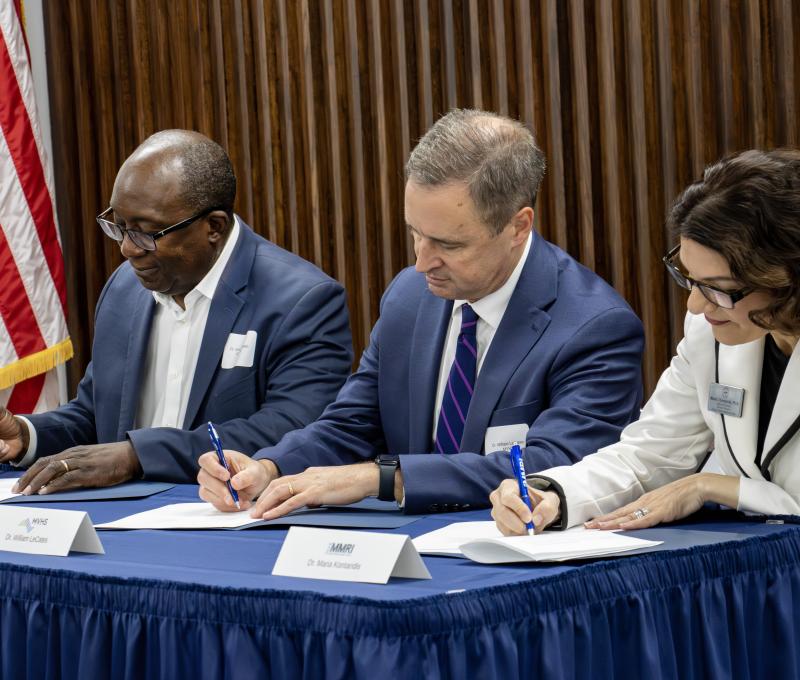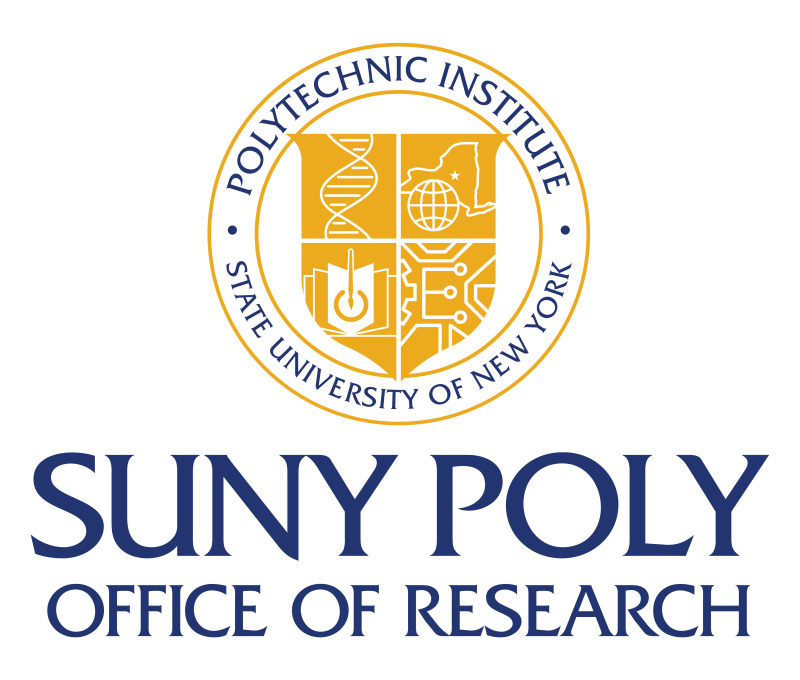SUNY Poly Student Awarded Fellowship With The U.S. Department of Energy’s Postgraduate Research Program

| For Release: | Immediate – November 13, 2014 |
| Contact: | Jerry Gretzinger, Vice President of Strategic Communications and Public Relations (518) 956-7359 | jgretzinger@sunycnse.com |
SUNY POLY STUDENT AWARDED FELLOWSHIP WITH THE U.S. DEPARTMENT OF ENERGY’S POSTGRADUATE RESEARCH PROGRAM
Ph.D. Candidate Accepts Postmaster's Appointment To Conduct Research At Albany NanoTech Complex
Albany, NY – As testament to Governor Andrew M. Cuomo’s leadership and support of New York’s innovation-education model, SUNY Polytechnic Institute today announced research student Gnanaprakash Dharmalingam has accepted an Oak Ridge Institute for Science and Education (ORISE) postgraduate research fellowship with the Department of Energy’s (DoE) National Energy Technology Laboratory (NETL). The prestigious appointment recognizes academic excellence and enables Gnanaprakash’s continued research at the Colleges of Nanoscale Science and Engineering (CNSE) in Albany.
“This is an incredible opportunity for Gnanaprakash and a wonderful endorsement of the education available to all SUNY Poly students, made possible through Governor Cuomo’s vision of innovation through academia,” said Dr. Robert Geer, Senior Vice President and Chief Operating Officer of SUNY Poly. “We are extremely proud of Gnanaprakash and his accomplishments and congratulate him on this impressive postgraduate fellowship.”
The NETL Postgraduate Research Program is a high-intensity program designed to identify highly promising students and further develop their advanced research skills. Gnanaprakash, a Ph.D. candidate with a 3.83 GPA in the SUNY Poly Nanoscale Engineering program, will work with CNSE faculty and NETL principal investigators to command the critical skills needed to become an independent scientist or engineer.
During his appointment, which begins November 14, 2014, Gnanaprakash will conduct research at CNSE exploring the plasmonic optical properties of gold nanoparticles embedded in metal oxide ceramic thin films. These very sensitive optical properties are being used and optimized to detect emission gases such as carbon monoxide, nitrogen dioxide and unburnt fuel in combustion related environments. The sensitive and selective detection of these chemical species under these conditions can then be used to further optimize both energy output and efficiency of next generation combustion systems.
“This is a truly amazing opportunity that I could not have had were it not for the world-class faculty and resources provided to me through SUNY Poly and CNSE, and I cannot thank them enough for the continued support and encouragement,” said Gnanaprakash. “I am excited to begin my fellowship with the Department of Energy’s National Energy Technology Laboratory and to continue my research at CNSE.”
“Gnanaprakash has been an exceptionally dedicated and hard worker on the plasmonics-based emission gas sensing project for nearly two years now,” said Michael Carpenter, CNSE Associate Professor of Nanoengineering and Gnanaprakash’s Ph.D. advisor. “Through this fellowship, Gnanaprakash will be exploring methods to optimize and integrate his tailored gold-metal oxide ceramic films onto fiber optic probes to further improve the integration potential of this emission gas detection and control method. I am very pleased that he has been awarded this selective fellowship and look forward to his continued success in Nanoscale engineering.”
####################
SUNY Polytechnic Institute. SUNY Polytechnic Institute (SUNY Poly) is New York’s globally recognized, high-tech educational ecosystem, formed from the merger of the SUNY College of Nanoscale Science and Engineering and SUNY Institute of Technology. SUNY Poly offers undergraduate and graduate degrees in the emerging disciplines of nanoscience and nanoengineering, as well as cutting-edge nanobioscience and nanoeconomics programs at its Albany campus, and degrees in technology, professional studies, and the arts and sciences at its Utica/Rome campus. As the world’s most advanced, university-driven research enterprise, SUNY Poly boasts more than $20 billion in high-tech investments, over 300 corporate partners, and maintains a statewide footprint. The 1.3 million-square-foot Albany NanoTech megaplex is home to more than 3,100 scientists, researchers, engineers, students, faculty and staff. The Utica/Rome campus offers a unique high-tech learning environment, providing academic programs in technology, including engineering, cybersecurity, computer science, and the engineering technologies; professional studies, including business, communication, and nursing; and arts and sciences, with degrees and course offerings in natural sciences, mathematics, humanities, and social sciences. Thriving athletic, recreational, and cultural programs, events, and activities complement the campus experience. SUNY Poly operates the Smart Cities Technology Innovation Center (SCiTI) at Kiernan Plaza in Albany, the Solar Energy Development Center in Halfmoon, the Photovoltaic Manufacturing and Technology Development Facility in Rochester, and the Smart System Technology and Commercialization Center (STC) in Canandaigua. SUNY Poly founded and manages the Computer Chip Commercialization Center (Quad-C) on its Utica campus, and is lead developer of the Marcy Nanocenter site, as well as the Buffalo High-Tech Manufacturing Complex, Buffalo Information Technologies Innovation and Commercialization Hub, and Medical Innovation and Commercialization Hub. For information visit www.sunycnse.com and www.sunyit.edu.









